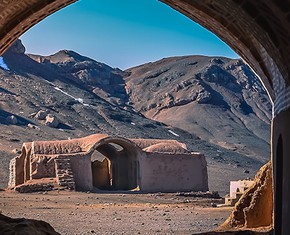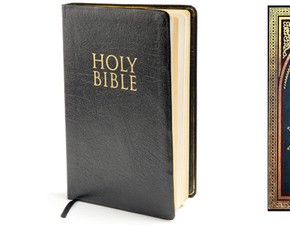The views expressed in our content reflect individual perspectives and do not represent the authoritative views of the Baha'i Faith.
Like the original teachings of all major religions, the Baha’i Faith exalts peace, counsels non-violence, and forbids the use of physical force.
This clear Baha’i approach to non-violence comes directly from Baha’u’llah, who asked the Baha’is to:
Sanctify your ears from the idle talk of them that are the symbols of denial and the exponents of violence and anger. – Baha’u’llah, Gleanings from the Writings of Baha’u’llah, p. 72.
When the Baha’i Faith began, before Baha’u’llah’s teachings were widely disseminated, the earliest Baha’is, and the members of the Babi Faith that preceded them, did sometimes defend themselves when attacked. But Baha’u’llah, in his writings, lauded those Baha’is who voluntarily gave up their lives under the intense persecution the government and the clergy visited upon them:
This people [the Baha’is]need no weapons of destruction, inasmuch as they have girded themselves to reconstruct the world. Their hosts are the hosts of goodly deeds, and their arms the arms of upright conduct, and their commander the fear of God. Blessed that one that judgeth with fairness. By the righteousness of God! Such hath been the patience, the calm, the resignation and contentment of this people that they have become the exponents of justice, and so great hath been their forbearance, that they have suffered themselves to be killed rather than kill, and this notwithstanding that these whom the world hath wronged have endured tribulations the like of which the history of the world hath never recorded, nor the eyes of any nation witnessed. – Baha’u’llah, Epistle to the Son of the Wolf, pp. 74-75.
Despite the vicious persecution the early Baha’is endured, Baha’u’llah urged his followers to never contend, dispute or physically harm anyone—but instead to seek peace, and even be willing to die for it:
… rendering assistance unto God, in this day, doth not and shall never consist in contending or disputing with any soul; nay rather, what is preferable in the sight of God is that the cities of men’s hearts, which are ruled by the hosts of self and passion, should be subdued by the sword of utterance, of wisdom and of understanding. Thus, whoso seeketh to assist God must, before all else, conquer, with the sword of inner meaning and explanation, the city of his own heart and guard it from the remembrance of all save God, and only then set out to subdue the cities of the hearts of others.
Such is the true meaning of rendering assistance unto God. Sedition hath never been pleasing unto God, nor were the acts committed in the past by certain foolish ones acceptable in His sight. Know ye that to be killed in the path of His good pleasure is better for you than to kill. – Baha’u’llah, The Summons of the Lord of Hosts, pp. 109-110.
What a remarkable concept—that giving up your own life is actually better for you than taking the life of another person.
In the past, some clergymen and faith leaders justified and even encouraged the use of violence to force religious conversion, to conquer territory and to “subdue” opponents. Baha’u’llah, in his Most Holy Book, abrogated all religious teachings that promote such violence and killing:
Let none contend with another, and let no soul slay another; this, verily, is that which was forbidden you …. What! Would ye kill him whom God hath quickened, whom He hath endowed with spirit through a breath from Him? Grievous then would be your trespass before His throne! – p. 45.
“Let no soul slay another,” Baha’u’llah wrote, forbidding the taking of human life. True Baha’is follow that spiritual law, implemented by Baha’u’llah and exemplified by Abdu’l-Baha:
… human ferocity proceeds from selfishness, greed and oppression. It springs from no natural necessity. … Ferocity does not belong to the kingdom of man. It is the province of man to confer life, not death. – Abdu’l-Baha, The Promulgation of Universal Peace, p. 102.
Do harm to nobody; pray for all; try to make your light shine in the world and let your banner fly high in the Heavens. The beautiful perfume of your noble lives will permeate everywhere. The light of truth kindled in your hearts will shine out to the distant horizon! – Abdu’l-Baha, Paris Talks, p. 118.
In this series of essays dealing with the Baha’i approach to violence, we’ll examine what that radical new spiritual teaching means for individuals, for communities and for the world.
















Comments
Sign in or create an account
Continue with Googleor